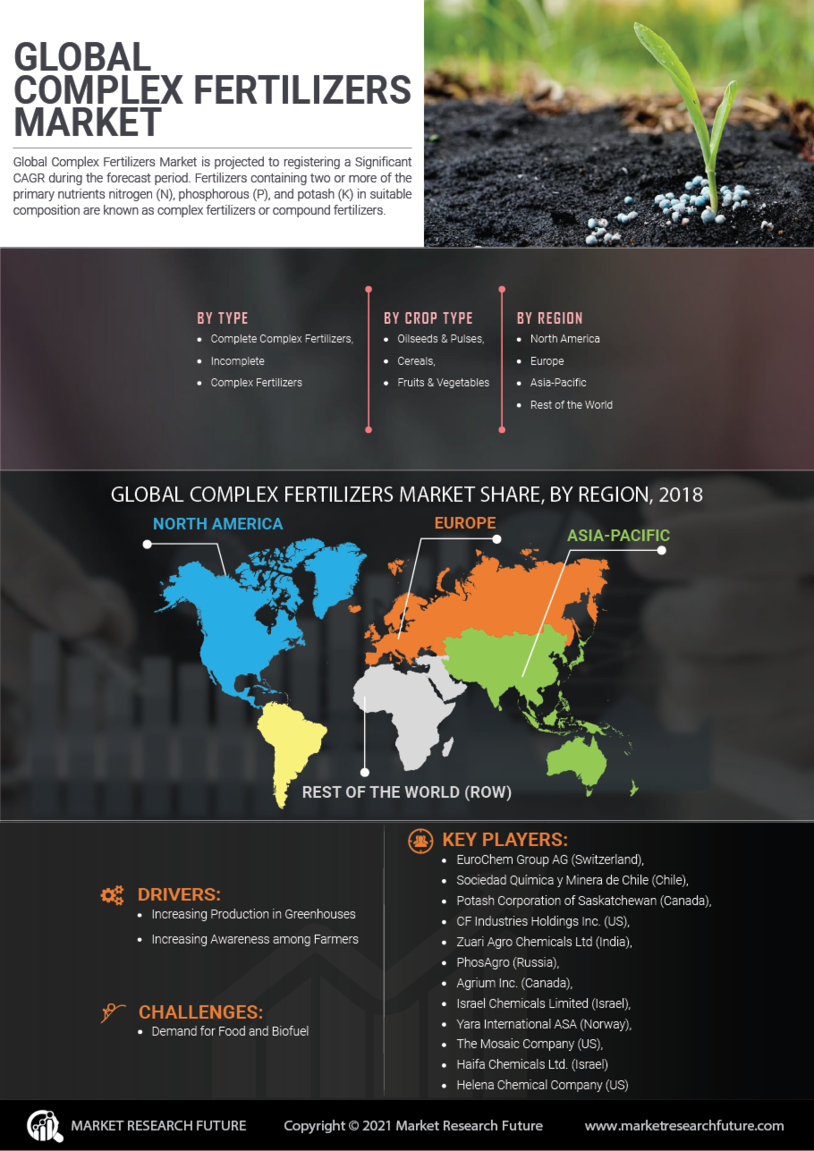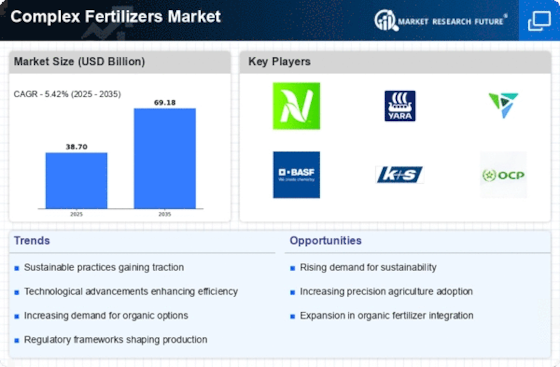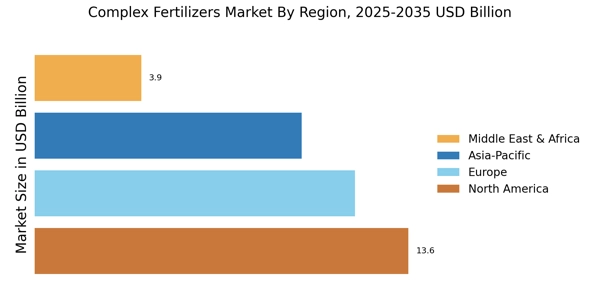Soil Health Awareness
There is a growing recognition of the importance of soil health in sustainable agriculture, which significantly influences the Complex Fertilizers Market. Farmers and agricultural stakeholders are increasingly aware that healthy soil is essential for optimal crop production. Complex fertilizers, which often contain micronutrients and organic matter, are being favored for their ability to improve soil structure and fertility. Reports indicate that the market for soil health products, including complex fertilizers, is projected to grow at a compound annual growth rate of around 5% through the next few years. This trend underscores the shift towards more sustainable farming practices, further propelling the Complex Fertilizers Market.
Rising Agricultural Demand
The increasing The Complex Fertilizers Industry. As agricultural practices evolve to meet these demands, the need for efficient nutrient delivery systems becomes paramount. It is estimated that by 2025, the demand for fertilizers could increase by approximately 20%, necessitating the use of complex fertilizers that provide a balanced nutrient profile. This trend is particularly evident in regions where intensive farming practices are adopted, leading to higher yields. Consequently, the Complex Fertilizers Market is likely to experience substantial growth as farmers seek to enhance productivity while maintaining soil health.
Government Support and Subsidies
Government policies and subsidies play a crucial role in shaping the Complex Fertilizers Market. Many governments are implementing initiatives to promote the use of advanced fertilizers to enhance agricultural productivity. These policies often include financial incentives for farmers to adopt complex fertilizers, which are seen as essential for achieving food security. In several regions, government support has led to a marked increase in the adoption of complex fertilizers, with market growth rates exceeding 10% annually. This supportive regulatory environment is likely to continue, further driving the Complex Fertilizers Market as stakeholders seek to align with national agricultural goals.
Technological Innovations in Fertilizer Production
Advancements in fertilizer production technologies are transforming the Complex Fertilizers Market. Innovations such as precision agriculture and smart fertilizers are enhancing the efficiency of nutrient application. These technologies allow for targeted delivery of nutrients, reducing waste and environmental impact. For instance, the integration of data analytics and IoT in farming practices enables farmers to apply complex fertilizers more effectively, optimizing crop yields. As these technologies become more accessible, the Complex Fertilizers Market is expected to expand, with a projected increase in market size by approximately 15% over the next five years. This evolution reflects a broader trend towards sustainable and efficient agricultural practices.
Environmental Regulations and Sustainability Initiatives
The increasing emphasis on environmental sustainability is significantly impacting the Complex Fertilizers Market. Stricter environmental regulations are prompting farmers to adopt fertilizers that minimize ecological footprints. Complex fertilizers, which often incorporate environmentally friendly components, are becoming more popular as they align with sustainability initiatives. The market is witnessing a shift towards products that not only enhance crop yields but also adhere to environmental standards. It is anticipated that the demand for sustainable fertilizers will grow by approximately 12% in the coming years, reflecting a broader commitment to sustainable agriculture. This trend is likely to bolster the Complex Fertilizers Market as stakeholders adapt to changing consumer preferences.

















